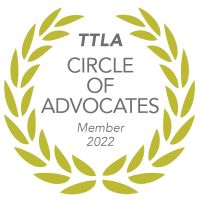When you require medical care, you almost always will be presented with a variety of forms that you are told to sign. At a time when you are thinking about your own medical condition, or that of a loved one, it is often difficult, and perhaps even impossible, to thoroughly read through and understand each of the forms you are asked to sign. So, what is the significance of those forms? And can you really sign away all your legal rights if a medical provider commits malpractice and you or a loved one suffers an unnecessary injury?
Two forms deserve special attention: 1) the consent form and 2) arbitration agreement forms.
CONSENT FORMS
Consent forms are documents medical providers use to inform the patient of the known risks of a procedure or course of medical treatment.
Patients generally cannot give “educated” or “informed” consent to a procedure if they are not told ahead of time what the possible complications are. The consent form is intended to legally protect providers if a patient encounters any of the identified recognized risks as a result of the procedure. Medical providers will try to make these forms as broad as possible to attempt to give themselves the highest level of protection. In fact, most consent forms include death as a risk of even the simplest procedures.
Consent forms may protect the provider from liability for failure to obtain informed consent, but they do not legally immunize the medical providers from claims of medical malpractice. Consent forms also do not generally protect providers from injuries that do not ordinarily occur in the absence of malpractice.
Medical negligence claims arise when the level of care exercised by the medical care provider fails to meet the standard of care expected of reasonably competent and diligent practitioners. When a medical care provider or hospital is negligent, they can still be sued for medical malpractice, even if the patient signed a consent form. However, if the consent form is properly drafted and explained, and the patient suffers a recognized risk that is listed on the form, the chance of proceeding with a viable claim is slim.
In order to be legally valid, contracts may not be unconscionable. In other words, if a contract is so shocking, or one-sided as to be unreasonable, it may not be legally enforceable. For this reason, a provider cannot legally force you to waive a claim for malpractice as a condition for treatment.
If you believe that you have suffered an injury from the negligence of a medical provider, you should contact a medical malpractice attorney without delay, even if you signed a consent form. We can advise you of your legal rights and can examine the consent form and explain to you what effect it might have upon your ability to pursue a claim.
ARBITRATION AGREEMENTS
An arbitration agreement is a document that many health care providers place before the patient, at admission or before a procedure. The arbitration agreement looks similar to a consent form and seeks to remove the patient’s right to present their case before a jury in the event the provider commits medical malpractice. Patients should be aware that arbitration agreements ARE generally enforceable in Tennessee. Before you or a loved one signs an agreement to arbitrate any dispute with a health care provider or nursing home, you may wish to speak with a lawyer or, at least, inquire whether you MUST sign the agreement before the facility will agree to provide care. If the facility’s willingness to provide medical care is contingent upon signing away a constitutional right to a jury, you may later be able to argue that the agreement is unconscionable.






